

Summer Heat and Disabling Conditions
Imagine this scenario: You are a farmer with high blood pressure (but on medications) who is baling hay on a hot summer day, driving a tractor without shade. It isn’t excessively hot, maybe only 80 F, so you feel as if there really isn’t any concern about overheating. After an hour or two, you start to feel a little more tired than normal, but not so bad that you need to stop (Plus you only have an acre to go). Then you start to feel a headache coming on, but you attribute it to the sun and 

This scenario would not be an unusual occurrence for someone who has any number of medical conditions or disabilities.
Many disabled people or those on certain medications can struggle with maintaining a safe body temperature during high temperatures. There are a number of conditions for which heat is a problem:
MS
Stroke
Autonomic disorders
Diabetes mellitus
Obesity
Skin disorders
Sickle cell trait
Cardiovascular disease
Parkinson’s disease
Guillain-Barré syndrome
Spinal cord injuries
Various inflammatory conditions
This is probably not an exhaustive list. The more I looked into this the more conditions I found were directly related to the dangers of summer heat. Most of these come down to limiting the body’s ability to dissipate or get rid of heat. Many medications that treat various conditions also place someone at risk for overheating. Medications for treating blood pressure and Parkinson’s can also greatly increase heat. Overheating can cause serious or even life-threatening heat exhaustion or heat stroke. Heat exhaustion is less serious but can quickly lead to heat stroke.
The following chart lays out signs and treatment for heat exhaustion and heat stroke:
| Heat Exhaustion Symptoms | What to do | Heat Stroke Symptoms | What to do
|
| General Weakness | Take a cool shower or use a cool compress to decrease body temperature | Elevated body temperature above 104 F
| Call 911 for emergency treatment |
| Increased heavy sweating | Hydrate with water or sports drink | Rapid and strong pulse or heart rate | Move to a shaded or cool area |
| A weak but faster pulse or heart rate | Move to a shaded or cool area | Loss of change or consciousness | Circulate air to speed up cooling |
| Nnausea or vomiting | Seek medical treatment if vomiting continues | Hot, red, dry, or moist skin | Use a compress or cold, wet cloth to help lower body temperature |
| Possible fainting, lightheadness, dizziness | Lie down
| ||
| Pale, cold, clammy skin | Remove any extra layers of unnecessary clothing like shoes or socks |
There are many outdoor jobs which require working in summer heat. Farmers, construction workers, landscapers, groundskeepers, truck farm laborers, and loggers all spend a great deal of time outside.
Drinking lots of water and electrolytes, the use of hats, and sunscreen are all recommended summer protections for everyone. However, for someone with a disability condition affected by heat, these steps are not enough to provide enough protection from the heat.
The first step we’re going to look at is personal protection for yourself. There are a number of different ways to do this. A simple cooling shirt or cooling pants can make a big difference in lowering your exposure.
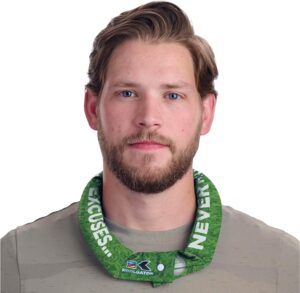
The use of cooling towels, neck cooling tubes, cooling arm sleeves, ventilated hard hats, and neck

There are a few more exotic methods of heat protection for the worker as well. Products like cooling vests which circulate cool water and fan vests are now available. Products like these are a bit more expensive, but probably a worthwhile investment so you can keep working outside if you are even more affected by hot temperatures.
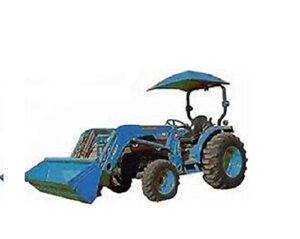

Next will be the workplace environment. Protection from sunlight is the first priority. Tractor canopies and umbrellas are a must for field work. If you don’t have a cab on the tractor then this should be a high priority. This should also be the case for lawn mowers, whether they are zero turn mowers or standard riding lawn.
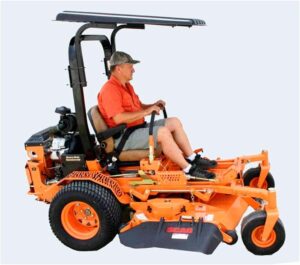

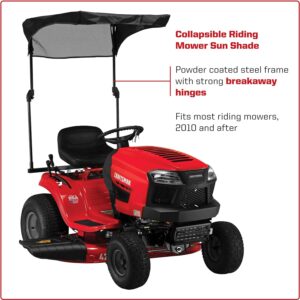

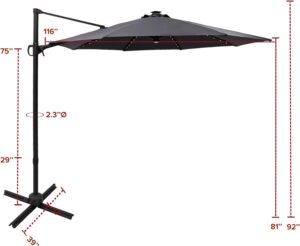

Another good place for the use of canopies or umbrellas might be for some workers who tend to stay in one spot for at least a middling length of time, even 20 minutes while working. Moving the umbrella down the row if you are weeding, for example, is well worth the small amount of extra energy and time required to move it.
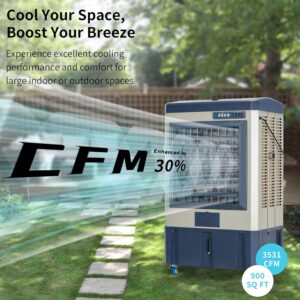

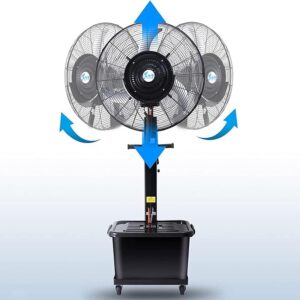

Worksite cooling misters are very useful in maintaining a cooler environment on the work site by dispersing a cooling water mist. Evaporative coolers are also a great alternative if keeping a dry environment is a priority.
The effects of summer heat can be an enormous influence on those of us who have a disability. Take care to monitor yourself, and take the preventative steps listed above to keep yourself healthy and working even during those hot summer days.
Below find some products mentioned above:
